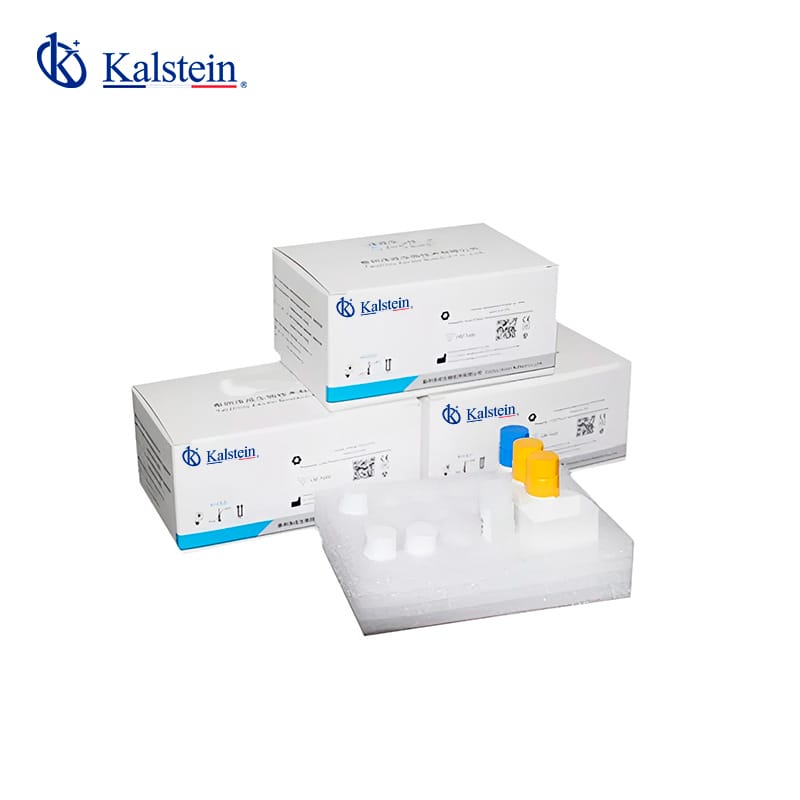Product Description
Bone metabolism tests are critical in assessing and understanding bone health, and the models YRA392, YRA393, and YRA394 offer state-of-the-art capabilities in this domain. These tests use a highly precise chemiluminescent immunoassay (CLIA) analysis mode to provide accurate measurements of key parameters for bone health assessment. The YRA392 model evaluates the intact Parathyroid Hormone (iPTH), which is a crucial marker in calcium regulation and bone turnover. The YRA393 model focuses on the 25-hydroxyvitamin D (25-OH-Vit-D), essential for bone health as it facilitates calcium absorption. Meanwhile, the YRA394 model measures Bone Gla-Protein (BGP), also known as osteocalcin, a marker of osteoblastic activity.
Each model is available in packaging specifications of 50 tests per box, ensuring an adequate supply for clinical or research use. Moreover, they support various platform packaging options, including 100T/BOX, 24T/BOX, and 48T/BOX, which feature Alkaline Phosphatase (AP) for versatile laboratory applications. With a storage requirement of 2-8°C, these tests maintain stability and accuracy over time. They also include calibration settings of 2 and 6 points, ensuring precise adjustments according to laboratory needs.
| Model | YRA392 | YRA393 | YRA394 |
| Tested Parameter | iPTH | 25-OH-Vit-D | BGP |
| Analysis Mode | CLIA | ||
| Package Specification | 50T/BOX | ||
| Platform | 100T/BOX, 24T/BOX, 48T/BOX AP (Alkaline Phosphatase) | ||
| Storage | 2-8°C | ||
| Calibration | 2/6 Points | ||
| Certification | CE, ISO13485, FSC | ||
Market Price
In the competitive landscape of laboratory diagnostic tools, the pricing for bone metabolism tests can range significantly based on the features and technological advancements they offer. For the YRA392, YRA393, and YRA394 models, while specific prices can fluctuate based on supplier agreements and order quantities, they generally position themselves as an investment in quality and precision in bone health diagnostics. On average, prices in the market can start from a few hundred dollars per box, scaling up with advanced features and capabilities.
Given the sophisticated nature of these tests, acquiring them directly from manufacturers like Kalstein, who offer transparent pricing and various purchasing options through platforms like Kalstein Plus, ensures you get the most competitive rates. This platform also allows for easy quotations, offering immediate insights into pricing based on bulk orders and customization needs.
Frequently Asked Questions
What is the importance of measuring iPTH in bone metabolism?
iPTH, or intact Parathyroid Hormone, is crucial for the regulation of calcium levels in the body, which directly impacts bone density and health.
How should I store these bone metabolism test kits?
The test kits should be stored at a temperature range of 2-8°C to ensure their accuracy and effectiveness over time.
What certification do these test kits have?
The YRA392, YRA393, and YRA394 models are certified with CE, ISO13485, and FSC standards, guaranteeing reliability in clinical settings.
Advantages and Disadvantages
The bone metabolism tests YRA392, YRA393, and YRA394 have significant advantages, including their precision through CLIA technology, versatility with multiple tested parameters, and flexible platform options for different testing needs. Their robust construction and recognized certifications further underscore their reliability in clinical and research settings.
However, potential disadvantages may include the necessity of maintaining strict storage conditions and the requisite investment for obtaining such specialized diagnostic tools. Users must also be knowledgeable in using these tests, although detailed guidelines and support from manufacturers can alleviate this concern.
Field Use of the Product
In practical settings, the bone metabolism test models are invaluable tools in hospitals and research laboratories. Medical professionals frequently utilize these tests for diagnosing and monitoring conditions related to bone density, osteoporosis, and metabolic bone diseases. The accurate assessment of iPTH, 25-OH-Vit-D, and BGP levels aids in crafting personalized treatment plans and monitoring their effectiveness over time.
In research settings, these models contribute significantly to studies exploring the complexities of bone metabolism, pathophysiology, and innovative treatment modalities. The flexibility offered by these tests in terms of parameter measurement and packaging allows researchers to adapt the tests to a variety of experimental protocols.
Recommendations
To maximize the efficacy and lifespan of the YRA392, YRA393, and YRA394 test kits, it is crucial to adhere to the recommended storage conditions. Regular calibration using the provided guidelines will help maintain the accuracy of results. Furthermore, receiving proper training on the utilization of CLIA technology and understanding the interpretations of results is advisable for users in clinical and laboratory settings.
Additionally, engaging with the Kalstein Plus platform for purchasing these test kits allows potential buyers to personalize their orders and receive timely quotations. This flexibility supports a broader range of laboratory needs, ensuring each testing environment can maximize its diagnostic capabilities.
If you are seeking a fusion of innovation and quality, you have come to the right place. At Kalstein we offer you the luxury of exploring our exclusive catalog of laboratory equipment. We manufacture each device with a high level of excellence. Our intuitive and agile online purchasing channels are designed for your convenience, ensuring the most friendly prices. Don’t hesitate any longer, we bring science to life, it’s time to be part of our community. https://kalstein.net/en/product/bone-metabolism-test-yra392-yra394/.


